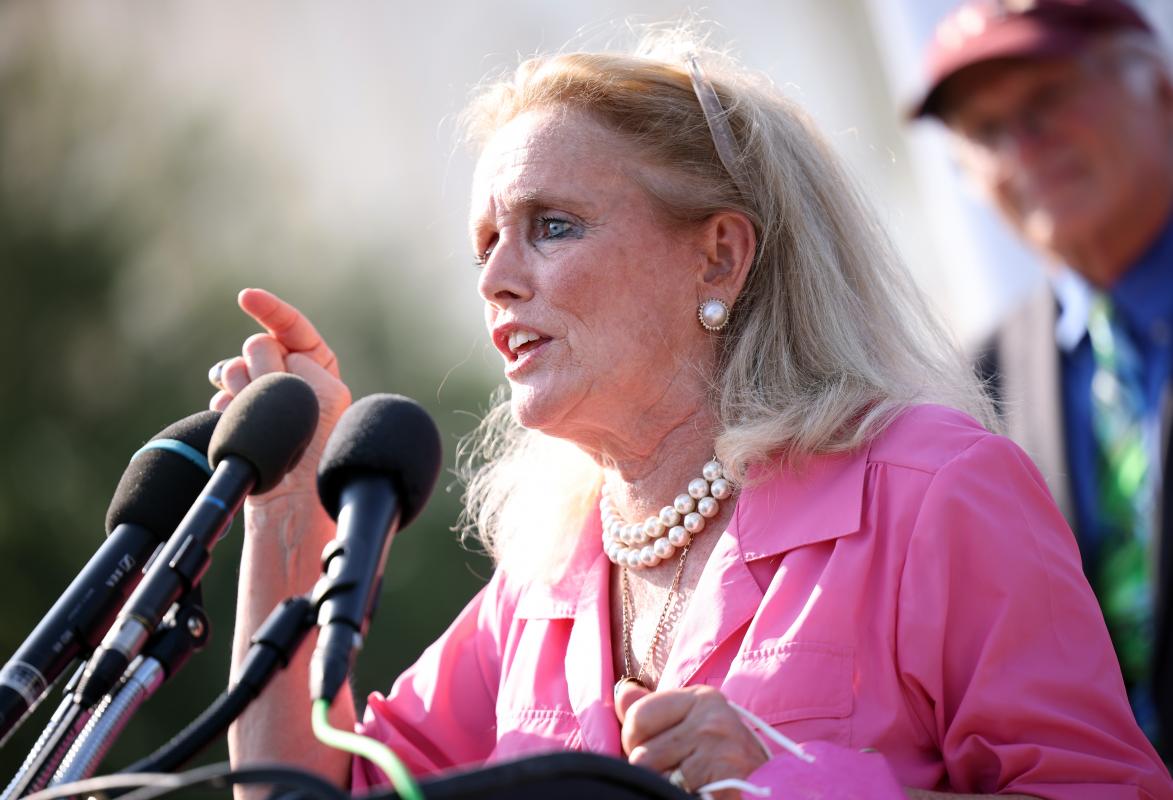
Representatives in the House are looking at new ways to hold colleges and universities accountable for Title IX misconduct under legislation introduced Tuesday that would establish stricter conduct standards for sexual harassment and assault.
Institutions should be held liable for "cultures" of sexual misconduct on their campuses, according to Representative Debbie Dingell, a Democrat from Michigan, who introduced the Title IX Take Responsibility Act alongside Representative Jahana Hayes, a Democrat from Connecticut. The legislation comes as two universities in Dingell’s district, the University of Michigan and Eastern Michigan University, face ongoing allegations about their handling of sexual assaults and incidents of harassment on their campuses.
“What was really clear to me as I have been spending a lot of time talking to people is that there were patterns on these campuses,” Dingell told Inside Higher Ed. “There were cultures that people knew about. I think universities have responsibility when they see a pattern.”
The original Title IX law currently doesn’t expressly prohibit sexual harassment -- which includes sexual assault -- as a form of unlawful sex discrimination at federally funded institutions. It also doesn’t expressly give the right for survivors of sex discrimination to sue their college or university, nor does it delineate the circumstances in which an institution may be held liable. Because statutory text doesn’t exist, the courts have had to establish the standards for when survivors can receive relief from their institutions through private litigation -- thresholds that are high and unfair, said Shiwali Patel, director of justice for student survivors and senior counsel at the National Women’s Law Center.
The bill would change this by codifying into law who at an institution needs to respond if they know sexual harassment is occurring and how they should do so, as well as allow students to enact a private right of action, or sue their college or university.
It would require more employees of an institution to respond if they become aware of sex discrimination -- in many cases, survivors choose to tell whoever they have a relationship with, which is not always someone the courts deem the right person to be notified for the institution to be held liable. It would also hold institutions liable if they don’t respond to sexual harassment with “reasonable care.”
“I hope that it would be much less likely that a school would knowingly shrug off complaints of sexual harassment, especially against staff and faculty,” said Sage Carson, manager of Know Your IX, a political advocacy group focused on informing students of their rights under the Title IX law. “This would be really powerful for cases such as the Larry Nassar case, where survivors were reporting to coaches and assistant coaches about the violence they were facing and the school says, ‘Well, the coach never told us so we’re not liable for it.’ Hopefully, this bill would ensure that schools take those complaints seriously and know that there will be ramifications for their actions if they continue to sweep violence under the rug.”
The legislation outlines ways that colleges and universities would have to exercise reasonable care to prevent or correct the effects of sexual harassment -- by establishing and enforcing a comprehensive harassment prevention policy and complaint procedure, conducting an investigation if a survivor requests it, providing supportive measures regardless of whether a survivor requests an investigation, and taking any other corrective action necessary to stop the harassment.
A student wouldn’t be required to file a formal Title IX complaint in order for a college or university to respond to sexual harassment, as many students don’t want to have to go through a complaint process, said Patel.
“What they really may want are just supportive measures from the schools to be able to feel safe and learn again,” Patel said. “There are a number of measures that schools could and should take that are separate from the complaint and investigatory complaint process. Once the school is on notice, they have to take action.”
Dingell wants her legislation to provide more protection for individuals, separate from administrative action that can be taken against institutions for Title IX violations by the Department of Education.
“The way Title IX right now works is that it would take away funds from the institution, but that's not helping the survivors,” Dingell said. “It's not focused on the survivors.”
With greater clarity and stronger conduct standards for institutions, the legislation would make it much easier for survivors of sex discrimination to seek redress from their college or university in court, which is currently a difficult process, said Carson.
“This would open up the doors to the courtrooms for survivors in ways that we haven’t historically seen, which I think is really powerful,” Carson said.
 from Inside Higher Ed https://ift.tt/2WplrSm
from Inside Higher Ed https://ift.tt/2WplrSmvia IFTTT
Comments
Post a Comment